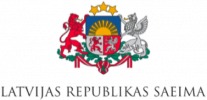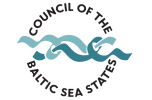On 25 April 2022, President of the Baltic Assembly Jānis Vucāns and President of the Nordic Council Erkki Tuomioja signed the Decision on Priorities of Cooperation between the Baltic Assembly and the Nordic Council for 2022 – 2023.
"The Baltic Assembly and the Nordic Council are close partners and allies since 1990. The cooperation of both organisations is based on a common understanding of the values that the Baltic-Nordic region represents. Democracy, rule of law and human rights are the core values of the Baltic and Nordic states and, therefore, should be highly respected and cherished. The work and common activities of the Baltic Assembly and the Nordic Council are also shaped by mutual trust and a common understanding of the importance of the cooperation of both regions.
Both organisations believe in the strength of a peaceful and stable Baltic-Nordic region; therefore, consider regional security to be an important driver for development. The Russian Federation’s invasion of Ukraine is an unjustified and cruel act that is also a clear danger to peace and stability not only in Ukraine but also in the Baltic-Nordic region. The Baltic and Nordic countries must do everything in their power to support Ukraine, be united on demonstrating a strong incentive to bringing an end to the aggressive behaviour of the Russian Federation and ensure security and peace in our region. The social and economic consequences of the invasion will affect the Baltic-Nordic region and, for this reason, the countries need to work together to support Ukraine but also mitigate the impacts of the war on the region.
For the integrated Baltic-Nordic region, transport, energy and infrastructure interconnections, as well as digital interoperability, are of utmost importance. Another important driver for the development of the region is the degree of transparency and compatibility between education systems, and one of the steps towards this goal is mutual recognition of higher education diplomas in the Baltic-Nordic region.
The Baltic and Nordic states share the view that the world does not revolve around them alone and that all decisions made today have to be done in a way to preserve the world for future generations. Climate change, global inequality and anti-democratic sentiments threaten the world and its development. The global fight against these threats cannot be won by individual countries but rather by joining forces. The Baltic and Nordic states are prepared to jointly contribute to addressing these issues.
Similarly, current challenges posed by COVID-19 have to be addressed together. Exchange of information and best practices, as well as joint efforts to swiftly recover from the crisis, are vital for the Baltic and Nordic states. For this reason, the Baltic Assembly and the Nordic Council will aim to bring experts, parliamentarians and ministers of the Baltic and Nordic states together to find the best solutions and learn from each other’s experiences not only to address the post-crisis challenges but also to be better prepared for cross-border crises in future.
Taking into account the foregoing considerations, the Baltic Assembly and the Nordic Council have agreed on the following priorities of cooperation for 2022 – 2023:
1) comprehensive foreign and security policy, including cybersecurity and increased resilience of the societies of the Baltic and Nordic states to disinformation, fake news and propaganda of authoritarian regimes;
2) awareness of the dangers to democracy and supporting democratic transitions, especially in the Eastern Partnership countries;
3) support for Ukraine in repairing the damage of war;
4) energy security and sustainability of the Baltic and Nordic states;
5) transport, energy and infrastructure interconnectivity and digital interoperability;
6) climate change mitigation and sustainable, resource-efficient and circular economies in the Baltic-Nordic region;
7) exchange of information and best practices to mitigate the impact of the COVID-19 crisis and prepare for possible cross-border crises in the future;
8) education mobility and mutual recognition of higher education diplomas in the Baltic-Nordic region.
9) work to restore the basis for multilateral cooperation based on trust, respect for international law, democracy and the rule-of-law in order to be able to tackle the existential threats to humanity like weapons of mass destruction, climate change, loss of biodiversity and unsustainable development."
 Print
Print 









